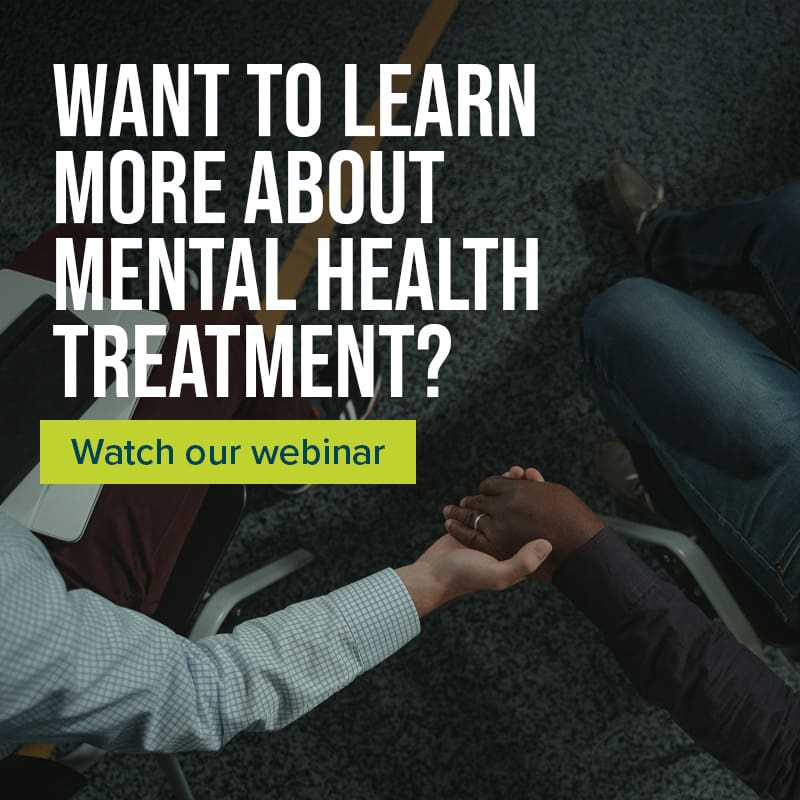By Jeff Vircoe
Edgewood’s Clinical Director Joel Hughes has been inspiring recovery for three decades.
Thirty years into his career, Joel Hughes is still fighting the good fight, trying to save lives in the middle of an addiction crisis.
Hughes is the Clinical Director at EHN Edgewood Nanaimo in Nanaimo, part of EHN Canada, the largest network of addiction and mental health facilities in the country. At his facility on the west coast, Hughes oversees a multidisciplinary team of clinical counsellors, all of them trying to help people with substance use disorders and other mental health challenges.
Born and raised around Kitchener, Ontario, he has spent 30 years in the broad field of helping others – half with adolescents on a ranch in Alberta, half at Edgewood with adults in Central Vancouver Island. His empathy comes naturally.
Raised to help others
“We had a lot of foster children in our home when I was young,” says Hughes. “I learned how to unconditionally love and care for others who were struggling and suffering. Then I had to learn how to let them go, that somebody else was taking it from there. I had done my part. That has stayed with me for my whole 30-year career. I do my part and I hope people are better off for having met me.”

With over 15 years in the EHN Canada family, hundreds if not thousands of patients certainly have met him. From his early days as a member of the Cedar team of clinical counselors at Edgewood, he moved on to team leader. Then clinical business development, followed by extended care, Aftercare, and outpatient experiences in Nanaimo, Prince George, Vancouver, and Victoria in B.C., and Calgary, Alberta.
A walk of compassion, education, and faith
This is a man who talks the talk and walks the walk of compassion, education, and faith.
“I am participating with a group of people that are enhancing other people’s lives, and then we move onto the next one. Next project. Next opportunity. Next person. I fully embrace a relationship with each person I come in contact with, as if they are going to be in my life forever. I put my whole self into that relationship. Then I am also able to detach and say goodbye when the time comes.”
We asked Joel Hughes to let us into his world in a Q & A session.
What brought you to Edgewood?
I have been doing this type of work for 30 years. I started out working with troubled adolescents. I realized over time that a lot of the kids I worked with had their trauma, neglect, and abuse at the hands of addicted parents. As I got older, and realized I could no longer handle the energy and the aggression of the disgruntled older teenagers, that it would be a nice time to shift to the adults and see if I could come at the issues from a different angle.
My wife wanted to come to the Island and live near the ocean. So, we came across Edgewood by accident as we started to meet people when we moved here.
Like so many of your colleagues, you have a strong addiction story in your personal life. Can you share a bit about that?
It is funny. I started at Edgewood just to come and find out what was going on here, how I could help. I didn’t know I would have addiction in my family. Now looking back after many years, two of my kids have had to go through treatment. It was kind of neat to see that whole process. I think they grew up in a good home where we shared and talked about feelings. They understood the work I was doing. So, it seems like addiction just shows up when it wants to show up. It doesn’t necessarily attach to horrendous childhoods. But luckily, when it arose, my kids were able to talk about it and get the help they needed. Life has gone on. They are doing okay.
How does Edgewood’s mix of science and work together when treating substance use disorders?
I started off in university in the field of science, so I am very much a science and logic-based person. I think the metaphysics of it all IS science. When I think about energies and energy fields and the way that we connect, and the possibility of a higher power or universal energy, or a god-like deity, that all relates quite nicely scientifically with the whole way in which humans interact and connect with each other.

Look at it this way. We have had so many people who feel like they have come alive in this place. They stay here long enough, getting good sleeps, drinking more water, eating better food, and getting a bit of exercise. Soon they are starting to share, to share feelings and connect and relate to other people who share similar stories. You can see them come alive, in a way, that their spirit is awakening. They start to connect to people on that level and they start to trust that there is more to life than their own self-centred nature right in front of them.
How has the transition of Edgewood to the EHN Canada banner gone?
It has been great. EHN Canada has always been open to providing us with top quality trainers and various modalities to ensure we are able to provide the patients with what they are looking for and what they need. As well as scholastically, like being willing to chip in for people wanting to pursue further education.
And the changes from the old Edgewood to what we see today?
Let me put it this way. There really wasn’t any particular research that suggested that we couldn’t be a little bit more compassionate, a little bit more where the patients were at, giving them a little bit more space to figure some things out. That we didn’t have to be as rigid, or as forceful, as we began to become a little bit more trauma informed about why people might be behaving the way they are. I think the addition of the DBT material really helped with skill development. Recognizing that a lot of times people were doing the best they can and that there may be a skill deficit at play as to why things weren’t working out for them.
Why are you still here after 15 years? What makes Edgewood so special?
Some things are really important to me and why I would stay at a place like Edgewood is because it has a lot of similar values that I have around connecting as a family. How alumni are part of our family for life. That we stay connected as much as they are willing. We invite them to come back. We allow them to come in the building whenever they need to drop by to have a coffee or a chat. A cry. They can sit in on a lecture. Be part of a group discussion. It is not just treating someone and then having them disappear. They are part of our lives.

Edgewood has always appeared to have done that and definitely has in the 15 years I have been here. Sometimes people are struggling, having a bad day and they just want to show up and have a coffee in the building. They don’t even necessarily need to talk to anyone, and it just helps to get them grounded. We have got people that fly in from all over the country, to take a little trip that includes stopping by here as part of their holiday or part of their journey. Tie it into a Cake Night just to say hello. That is special.
So, when I ask you about your calling, to do this work, it is all tied in?
When you think even of some of the words that Jesus shared, all He has asked us to do is to love what is in front of us. Unconditionally. Let that be all that there is. That is what I choose to do. Certainly, there is some pain and some suffering from people that get in their own way. We have lost a lot of people along the way, so, there is death, there is sadness, there is heartache. But that is the fullness of life. That is to experience life of the full. It is hard to have real joy if you haven’t had true sorrow. I want to be part of real life.
Recovery is possible. We can help.
Struggling with drug or alcohol addiction, depression, anxiety, trauma or other mental health disorder? You can begin your recovery journey at our facilities across Canada. Find out more about what we treat.




